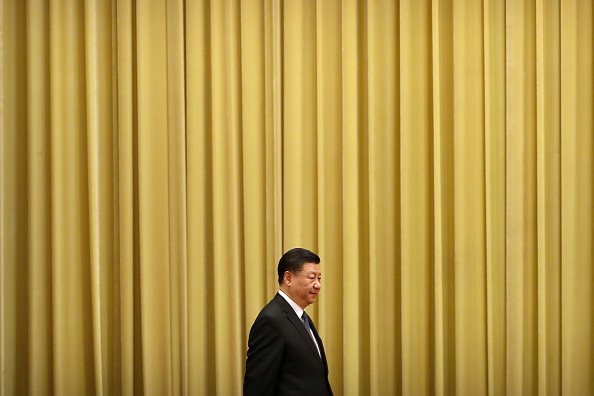Richard Javad Heydarian is a fellow at National Chengchi University (Taiwan). His forthcoming book is “The Indo-Pacific: Trump, China and the New Struggle for Global Mastery.”
TAIPEI — Even as hundreds of thousands of protestors in Hong Kong rally in the streets against China’s overbearing power, the Republic of China (Taiwan) is similarly resisting Beijing’s coercive efforts to incorporate it into a Greater China. “China is getting more and more aggressive,” Taiwan’s President Tsai Ing-wen told me a few days ago as we discussed the growing threats to her country’s independence at the presidential palace. But “we will not back down,” she said.
Tsai highlighted Beijing’s accelerated efforts to bludgeon the island nation into submission. Ahead of Taiwan’s presidential election next year, Beijing launched a multipronged campaign to eviscerate the island nation’s pro-independence impulses as well as strengthen the momentum towards reunification under China’s terms. What happens here in Taiwan has direct implications for the broader region, where smaller countries are grappling with China’s hegemonic push for a modern tributary system in Asia based on the concept of tianxia — which roughly translates to “all under heaven” coexisting harmoniously.
Earlier this year, Chinese President Xi Jinping declared that China and Taiwan “must and will be” reunited, ostensibly under Beijing’s terms. Xi has also touted the “great rejuvenation of the Chinese nation,” and in a recent report to the 19th Communist Party Congress, Xi said reunification was a vital aspect of a “new era” for China.
Battered by increasing domestic criticism for his perceived mishandling of the ongoing trade war with Washington, the Chinese president might be tempted to rally domestic support through greater foreign policy adventurism. The Chinese defense establishment seems committed to this cause. During this year’s Shangri-La Dialogue in Singapore, Chinese Defense Minister Wei Fenghe warned that the People’s Liberation Army will “make no promise to renounce the use of force” to reunify Taiwan with China. He also said that “any underestimation of the PLA’s resolve and will is extremely dangerous.”
Meanwhile, recent Chinese military action suggests Beijing is intent on tightening the noose around Taiwan. In April, Chinese jets brazenly crossed into Taiwan’s airspace for the first time in years. In May, the PLA conducted threatening live-fire drills in the Taiwan Strait. A month later, China’s flagship aircraft carrier, the Liaoning, set sail through the area in a demonstration of Beijing’s superior naval power. These maneuvers, as a U.S. Defense Intelligence Agency report shows, serve a double purpose: intimidating Taiwan into submission and preparing the PLA for potential armed intervention.
But the even more immediate threat to Taiwan is China’s systematic efforts to exploit its freedoms and sabotage its democratic institutions.
“The Chinese … are engaged in a hybrid warfare,” Taiwanese Foreign Minister Joseph Wu told me. “They are trying very hard to infiltrate our society.” A senior Taiwanese national security advisor said Beijing had a “sophisticated strategic plan” that aims to co-opt Taiwan’s political elite — including village-level leaders, media personalities and businessmen — in order to weaken pro-independence sentiment and facilitate Taiwan’s absorption by mainland China.
Two of the leading contenders in the upcoming Taiwanese presidential elections either have direct links with or are suspected of receiving support from the Chinese leadership. One is the strident populist Kaohsiung Mayor Han Kuo-yu, sometimes known as the “Trump of Taiwan,” who shot from obscurity to superstardom in recent years propelled in part by an effective social media campaign that seems to have been conducted from mainland China.
Another Trump-like presidential contender is Terry Gou, the chairman of the electronics giant Foxconn. He enjoys close ties to the Chinese leadership through multibillion-dollar investments in the mainland. Both Han and Gou have not only challenged Tsai’s pro-independence tendencies, but also called for closer economic ties with mainland China.
Despite the gradual co-optation of the Taiwanese elite, however, the public remains broadly skeptical of China — especially young people, the backbone of the Sunflower Movement against China’s growing economic encroachment into the island nation. Recent surveys, for instance, show that a majority of Taiwanese prefer sovereignty over economic benefits from China.
Another important factor is the decoupling of Taiwan’s economy from China as labor costs on the mainland rise. Major Taiwanese investors are now moving to Southeast Asia, particularly Vietnam and Indonesia. “We now have more liberty to speak for our independence,” Tsai told me. “People have to bear in mind that you need to be independent [economically], since China uses economics as leverage.”
The Tsai administration seems pleased with Washington’s aggressive stance toward China and its growing commitment to the island nation. The Trump administration has cleared arms sales to Taiwan and the U.S. Senate recently called for expanded support for the island nation’s defensive capabilities. Under Trump, Washington has also deepened diplomatic contact between senior American officials and the Taiwanese leadership. “We are now [more] confident about America’s commitment to our alliance,” one senior Taiwanese official told me.
Were Taiwan to fall, it would send shockwaves across the region and warnings to other countries about China’s infiltration into democratic societies across Asia. Remaining successfully independent, on the other hand, would embolden other small nations to stand up to Beijing and protect their own freedoms.
So far, despite facing an existential threat from China, the Taiwanese leadership remains undaunted in its efforts to secure the island nation’s democracy and independence. After all, as Taiwan’s impassioned foreign minister put it, “showing weakness [to China] is an invitation for aggression.”




